The Project Management Office (PMO) is dedicated to coordinating and managing EU & national co-funded research projects. Our team of experienced project managers ensures that each project is delivered on time, within budget, and to the highest standards. We work closely with stakeholders to align project goals with EU & national funding requirements, providing oversight, guidance, and support throughout the project lifecycle. Our key focus areas include project planning, risk management, compliance with EU regulations, and ensuring the effective use of resources. We also strive to foster collaboration and communication between technical teams and across all partners within a consortium. By overseeing multiple projects, we contribute to the successful implementation of innovative solutions that benefit society and the economy. Our work is centered on making sure projects not only meet their objectives but also deliver measurable impact.
Core Activities
- Grant Agreement Preparation: Drafting, negotiating, and finalizing the Grant Agreement with relevant stakeholders to ensure compliance with EU regulations and project-specific requirements.
- Consortium Agreement Preparation: Developing and negotiating the Consortium Agreement, which outlines the roles, responsibilities, and terms of collaboration among all project partners.
- Project Monitoring: Continuous tracking of project progress, including timelines, deliverables, and partner performance to ensure milestones are met and objectives are achieved.
- Data Management: Overseeing data handling and storage protocols in line with EU regulations, ensuring data integrity, privacy, and accessibility throughout the project lifecycle.
- Project Management Handbook: Creating and maintaining the Project Management Handbook, providing guidelines, best practices, and standardized processes for all project activities.
- Financial Overview: Managing and monitoring the financial aspects of the project, ensuring that resources are allocated efficiently and within the approved budget, including cost control and forecasting.
- Open Calls Management: Handling the management and administration of open calls both in the proposal preparation and within the project execution, ensuring all criteria are met, from start to end, during the whole lifetime: a) preparation b) open call applications c) applications evaluation d) contracting e) onboarding f) monitoring and reviewing alongside with the financial management of the FSTP actions.
- Dissemination Activities: Planning and executing strategies for disseminating project outcomes and results to relevant stakeholders, including academic publications, reports, and public outreach.
- Communication Activities: Coordinating communication efforts to ensure that all stakeholders are informed and engaged, including internal and external communication channels.
- Exploitation Activities: Identifying, developing, and implementing strategies to exploit the results of the project, including commercialization, licensing, and partnerships.
- Clustering: Facilitating collaboration between projects within the same thematic area or sector to enhance synergies and share knowledge and best practices.
- Organizing Webinars: Planning and organizing webinars to share project insights, results, and advancements with a broader audience, including stakeholders, researchers, and industry professionals.
- IPR Management: Managing Intellectual Property Rights (IPR) throughout the project, ensuring that ownership, protection, and usage rights are clearly defined and respected.
- Market Analysis: Conducting thorough market analysis to assess the relevance and potential impact of the project results within the target market, ensuring that the project outcomes align with market needs.
- Business Plan Development: Supporting the creation and refinement of business plans based on project results, ensuring sustainability and the potential for future funding or commercialization.
PMO excels in coordinating EU research and innovation projects with a unique blend of technical expertise, agile project management, and a focus on real-world, sustainable outcomes. With extensive experience in managing multi-disciplinary teams and navigating complex EU funding mechanisms, we are adept at driving innovation while ensuring that projects are executed with precision and transparency. Our interdisciplinary approach fosters collaboration across sectors, enabling the delivery of cutting-edge solutions that have a lasting societal and technological impact.
Core Competencies of the Team
Project Coordination and Management Expertise
-
Experienced Project Managers: Our team has a strong background in managing large-scale, multi-partner EU research and innovation projects, ensuring projects are executed within scope, budget, and timeline.
-
Cross-Cultural & International Collaboration: Managing diverse, multi-disciplinary teams from various EU countries, fostering collaboration across different organizational cultures, and ensuring clear communication channels.
-
Risk Management and Contingency Planning: Expertise in identifying potential risks at various project stages and creating contingency plans to mitigate them.
-
Ethics & Legal Management: Ensuring compliance with laws such as GDPR, obtaining ethical approvals where necessary and protecting participant rights through informed consent. Furthermore, the team is experienced in managing intellectual property, promoting diversity and inclusivity, and ensuring transparency in the research process. Ultimately, PMO is responsible for overviewing and ensuring adherence to national and EU regulations, especially in fields like AI where projects must consider ethical implications such as fairness, accountability, transparency, and the potential impact on human rights.
Technical Knowledge and Domain Expertise
-
Research & Innovation Excellence: The team has deep knowledge across various technologies and domains, such as AI, IoT, green technologies, and digital transformation. This enables effective communication with technical teams while ensuring the project stays aligned with the research goals.
-
Agrifood: Expertise in application of advanced digital technologies in the agrifood sector, with a focus on smart farming, food safety, farm to fork approach and circular economy practices. The team has participated in projects that integrate IoT, AI, big data analytics, and remote sensing technologies to optimize agricultural productivity, ensure traceability and safety along the food value chain, and promote sustainability. By leveraging technological innovation, PMO supports the sector’s digital transformation by enabling data-driven decision-making, efficient resource use, and environmentally responsible practices for farmers and agribusinesses.
-
Edu-tech: Specialization in preparing high-impact proposals focused on the development of innovative, learner-centered e-learning solutions that address the evolving skill demands of today’s market within the ICT domain. Our team has proven expertise in designing and developing custom learning platforms and mobile applications that deliver personalized, data-driven training experiences. These solutions are built to be highly scalable and adaptable, with the focus on equipping learners with the technical skills required to succeed in today’s rapidly evolving technological landscape.
-
ICT on Social Sciences and Humanities: Experience in applying novel technologies, particularly Artificial Intelligence (AI) and Machine Learning (ML), to enhance security and resilience within the Social Sciences and Humanities (SSH). This includes developing data-driven tools for the detection of hidden patterns of criminal activities. The team has contributed to interdisciplinary projects that bridge technology and SSH, enabling the design of innovative solutions tailored to complex societal challenges, such as human trafficking and exploitation, gender-based violence, corruption, disinformation and violent radicalization. By combining technical know-how with domain-specific insights, we ensure that AI and ML applications are both effective and socially responsible, supporting the detection, prevention, and ultimately the combatting of such crimes.
-
5G/6G Telecommunications: Experience in demonstrating activities in the domain of 5G/6G Telecommunications in Large-scale field trials testing and validating network applications and 5G/6G experimentation frameworks. Extended experience in demonstration leadership and coordination through participation in various EU projects as demo WP leaders, covering the whole canvas from trials planning to implementation and evaluation through end-users’ experience recording.
-
-
Expert in EU Funding Programs: A detailed understanding of Horizon Europe and other EU funding schemes, ensuring compliance and smooth application and reporting processes.
Financial and Resource Management
-
Budgeting and Financial Oversight: Competence in handling EU project finances, from cost estimation and budgeting to auditing and financial reporting. Our team ensures financial accountability, transparency, and adherence to EU regulations.
-
Resource Allocation and Optimization: Maximizing project resources (human, technological, and financial) for optimal outcomes while ensuring that resource usage is aligned with project goals.
Communication and Stakeholder Engagement
-
Stakeholder Relationship Management: Building and maintaining strong relationships with various stakeholders, including EU bodies, consortium partners, and external collaborators.
-
Effective Communication Strategy: Creating clear communication plans, including newsletters, reports, and presentations for stakeholders to keep them informed of the project’s progress and results.
Unique Approaches and Value Proposition
Tailored Methodologies
-
Agile and Hybrid Project Management: Our team’s ability to adapt traditional project management practices (like Waterfall) with more flexible methodologies (like Agile), ensuring that the team can swiftly pivot when needed while still maintaining rigorous oversight.
-
Tailored Frameworks for Research Projects: Our team has developed specialized frameworks that bridge the gap between traditional industry project management and the unique needs of research and innovation projects. This includes integrating scientific exploration with practical milestones and clear deliverables.
Interdisciplinary Collaboration
-
Fostering an Innovation Ecosystem: Encouraging and nurturing collaboration among project partners with diverse skill sets, from academic researchers to industry professionals, ensuring the cross-pollination of ideas and unique solutions to problems.
-
Bridging Research with Real-World Application: PMO focuses on how research outcomes can have tangible, real-world impacts by working with industry partners to translate theoretical knowledge into practical, scalable solutions.
Sustainability and Long-Term Impact
-
Sustainable Project Outcomes: A unique focus on the long-term sustainability of the research outcomes, both in terms of environmental impact and the scalability of technologies developed. This includes strategic planning for the post-project phase, ensuring that innovations can be adopted and maintained long-term.
-
Social Impact Focus: Alongside technical advancements, PMO often emphasizes the social and economic implications of the innovations, ensuring projects create meaningful value for society.
Continuous Improvement and Knowledge Transfer
-
Lessons Learned and Best Practices: PMO strives to continuously integrate lessons learned from past projects into current and future initiatives, ensuring a cycle of constant improvement. This iterative process enhances efficiency and reduces common challenges.
-
Knowledge Transfer & Dissemination: Ensuring the outcomes, results, and methodologies are shared widely through conferences, publications, and workshops, contributing to the broader research and innovation ecosystem.

Description
The D-HYDROFLEX project will advance excellence in research on digital technology for hydropower paving the way towards more efficient, more sustainable, and more competitive hydropower plants in modern power markets. D-HYDROFLEX will develop a toolkit for digitally ‘renovating’ the existing hydroelectric power plants based on sensors, digital twins, AI algorithms, hybridization modelling (power-to-hydrogen), cloud-edge computing and image processing.Key Contributions

Description
ASCAPE created an open AI infrastructure for healthcare providers, such as hospitals. The new knowledge generated by this process was sent back to the open AI infrastructure to be shared with everyone, while medical data remained private. The services designed and developed by the project included intelligent interventions for physiological and psychological support, improved patient and family counseling and guidance, early diagnosis and prediction of ill health, disease trajectory and relapse detection, and improved health education.Key Contributions
PMO team undertook the project coordination which also entailed the activities of data management, risk management and Quality Assurance. Furthermore, PMO had major contribution to the Ethics and Legal monitoring of the ASCAPE project, ensuring the ethical compliance and the enforcement of the necessary organizational and technical measures required for the succesful implementation of project's clinical trials. Finally, PMO also led the dissemination activities related task ensuring the scientific and broader diffusion of project's results by leading project's participation in the Horizon Booster assisting mechanism, creating a cohesive and aspiring dissemination plan while working closely with the Communications manager to ensure the maximum performance about project's visibilty.
Description
HEISINGBERG aims to bring the state-of-the-art spatial photonic spin simulators (incorporating an iterated cycle of all-optical processing through a spatial light modulator that couples 10,000 spins) into the quantum regime by upgrading its coherent drive to squeezed light, making it fully programmable through vector-matrix multiplication schemes, use of holography, ancillary spins & effective magnetic fields, and designing dedicated custom-tailored and purpose-built algorithms. The reduced fluctuations in one quadrature of the fields will allow us to scale up and optimize the performances beyond the capabilities of both classical supercomputers and competing spin-simulators. HEISINGBERG devices will operate 100,000 spins at room temperature and process new quantum annealing algorithms on an improved XY architecture. Besides, the nonclassical resources of squeezed states when modulated, admixed and phase-controlled through beam splitters, such as entanglement or superpositions of multiphoton states will be prospected to harness a quantum advantage and boost existing spin simulators into their quantum simulation regime. This development will stimulate the quantum information processing community by concretely articulating problems of algorithmic complexity and clarify the nature of the quantum advantage available in annealers and simulators. These advances will allow us to demonstrate, on a cloud platform, annealing and adiabatic algorithms that can efficiently solve NP-hard problems.Key Contributions
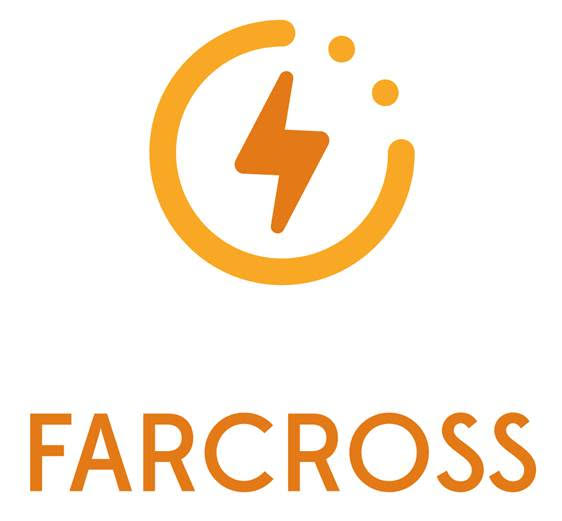
Description
To achieve its energy goals EU needs to establish a geographically large market by initially improving its cross-border electricity interconnections. FARCROSS aims to address this challenge by connecting major stakeholders of the energy value chain and demonstrating integrated hardware and software solutions that will facilitate the “unlocking” of the resources for the cross-border electricity flows and regional cooperation. The project will promote state-of-theart technologies to enhance the exploitation/capacity/efficiency of transmission grid assets, either on the generation or the transmission level. The hardware and software solutions will increase grid observability to facilitate system operations at a regional level, exploit the full potential of transmission corridors for increased electricity flows that will facilitate transition to flow-based regional market coupling, consider cross-border connections and their specific ICT and grid infrastructure, planning to use a wide-area protection approach to ensure the safe integration of renewable energy sources into the grid, mitigate disturbances, increase power system stability. An innovative regional forecasting platform will be demonstrated for improved prognosis of renewable generation and demand response and a capacity reserves optimization tool will be tested to maximize cross-border flows. The non-harmonization of national regulation will be studied and measures will be recommended to avoid distortion of the technology benefits.Key Contributions

Description
PUZZLE's goal was to design solutions that can be easily on-boarded by external cybersecurity providers and seamlessly adopted by end users. To this end, PUZZLE developed cybersecurity tools to enable even the smallest enterprises to monitor, forecast, assess, and manage their cyber risks. Specifically, the project tracked the relationships among the cyber assets of each small and microenterprise. Furthermore, it considered the available network and compute and storage infrastructures and used them to efficiently calculate individual, cumulative, and propagated risks, as well as recommend and apply mitigation actions.Key Contributions

Description
RAINBOW designed and developed an open and secured fog computing platform that advanced the management of extensible, diverse, and safe IoT services and cross-cloud applications. The project worked towards extending fog computing to its real potential by supplying the development, composition, data, and network management to reach secure end-user applications.Key Contributions
PMO team acted as the project coordinator in the RAINBOW project by undertaking and carrying out all the related activities such as QA implementation, continuous risk monitoring, data management plan & monitoring, ethics and legal assessment and monitoring. Furthermore, PMO worked closely with the demonstrators' WP to ensure the efficient user/stakeholders' requirements analysis and the timely execution/implementation of their use cases while also supporting them in achieving their KPIs and conducting their exploitation analysis. Furthermore, PMO heavily contributed in the Exploitation activities so as to ensure the delivery of market analysis, individual exploitation plans and the creation of the business models.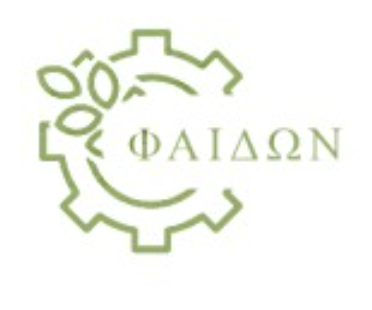
Description
The PHAEDON project aims at enhancing transparency in the agri-food sector through an innovative and state-of-the-art food traceability system which supports all the stakeholders and processes of the value chain, in all stages from production to consumption. More specifically, the project will design, implement and evaluate a fully decentralized traceability system for the agri-food sector supply chain, and specifically for the supply-chain of the Sea Buckthorn from Meteora, using Distributed Ledger Technologies, Edge Computing and IoT. The system will provide food tracking (keeping record of the product at each stage) and food tracing (reconstructing the history of the data recorded by the tracking process) functionalities. At the same time, additional functionalities will be implemented for the two main end-user categories, (the professionals who are involved in the production of the food product and the consumers) including monitoring, alerting and feedback mechanisms related to food safety.Key Contributions

Description
AROGI is an innovative robotics project dedicated to transforming logistics for small and semi-structured spaces like hospitals, hotels, and compact warehouses. By introducing autonomous robots powered by a smart Task Management System (TMS), AROGI automates material transport, boosting productivity, enhancing safety, and significantly reducing logistics costs. Tailored for environments where traditional logistics solutions are impractical, AROGI offers an affordable, scalable solution to streamline operations and free up valuable human resources.Key Contributions

Description
In an increasingly digitalised and connected world, cyber threats like viruses, data breaches and denial of service attacks are becoming a major issue, compromising the safety and privacy of personal and communal data. To address this challenge, the EU-funded REWIRE project will introduce a holistic cybersecurity platform that can continuously monitor open-source and open-specification hardware and software for IoT devices, assessing potential threats. The platform will provide protection throughout the IoT device lifetime. REWIRE will also introduce a cybersecurity certification procedure that is in line with the new EU cybersecurity regulations. The novel solutions will be tested across three pilot environments – automotive, smart cities and smart satellites – paving the way for more secure data exchange.Key Contributions

Description
BEYOND H2020 project develops and offers a big data platform and a set of technologies that allow a data consumer to search, find and utilize data generated by buildings (data owners). Based on these, the data consumers can run analytics and simulations that are actually needed to design a project and exploit them during the real-time operation of the buildings so as to optimize their operation and energy performance.Key Contributions
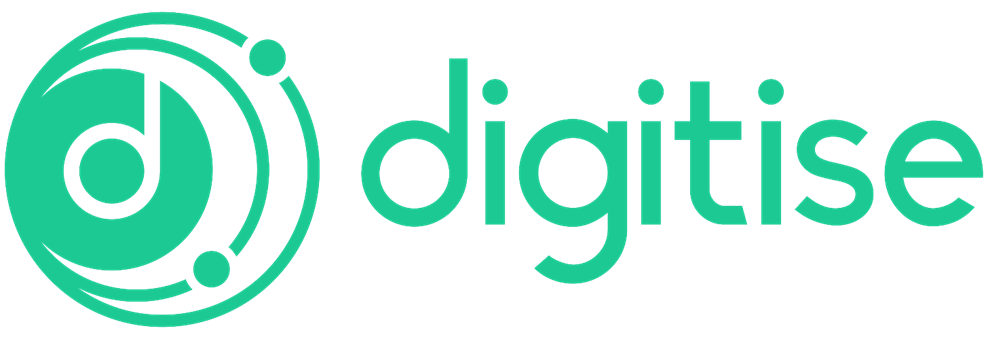
Description
DIGITISE aspires to enable the digital literacy and empowerment of consumers/ prosumers as well as the active engagement in digital energy activities and markets and the obtainment of an active role in the energy transition. It brings together proven know-how and tangible expertise around energy systems and flexibility services, energy markets and transactions, social/ human engagement in digital ecosystems. It integrates advanced technologies for Innovative Cross- Sector Services, Digital Twins, DLT-enabled Marketplaces, AI Analytics and Big Data Management, Interoperability and Security, into a holistic end-to-end consumer empowerment framework that will be extensively validated in 1 well and long established Living Lab and 4 large-scale demonstration sites in Greece, Spain, Croatia and Ireland involving the required actors (consumers, prosumers and the business actors: Retailers/Aggregators/LECs), diverse, cross domain data sources, heterogeneous energy and non-energy systems/assets, and multi-variate climatic and socio-economic characteristics.Key Contributions
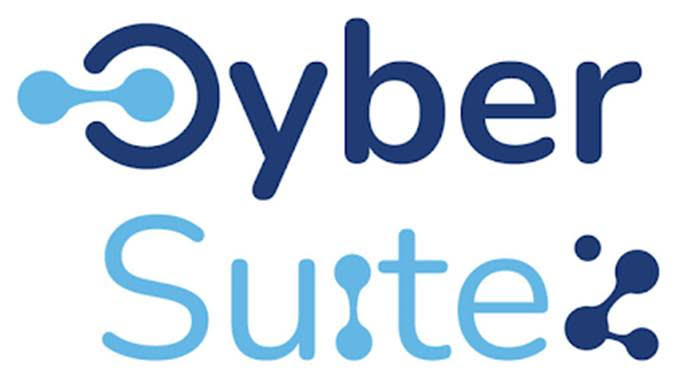
Description
Towards addressing the digital transformation oriented needs of SMEs, the CyberSuite offers a holistic cybersecurity framework to simplify the design, dimensioning, configuration, deployment and management of diverse cybersecurity services, providing advanced levels of security, privacy and trustworthiness for SMEs, into a single platform, directly targeted to fill the existing gap in the market, through an “easy-to-onboard” and “easy-to-deploy” cybersecurity services marketplace. The CyberSuite platform is composed of a pallet of advanced and existing cybersecurity services, providing an enterprise-grade “Security-as-a-Service” solution, including personalized recommendation cybersecurity functions and processes per se, advanced network-based intrusion detection mechanisms together with novel attestation and verification methods as a means of assurance and trusted interoperability with tools for cyber range capabilities and advanced cybersecurity analytics services. The project will also include both supply and demand support measures, implementing a maturity and integration phase of the solutions (supply) and featuring a massive demonstration plan with 4 end-users each from a different sector along with a hybrid online in-presence strategy to reach commercial partners and customers (demand). The project takes extensive advantage of the outcomes of past publicly-funded research in the EU, both for the marketplace and for the solutions, several of which have developed in the framework of EU-supported research and innovation projects.Key Contributions

Description
The Food Safety Market (TheFSM) aims to deliver an industrial data platform that will significantly boost the way that food certification takes place in Europe. It brings together and builds upon existing innovations from innovative ICT SMEs to deliver a uniquely open and collaborative virtual environment that will facilitate the exchange and connection of data between different food safety actors who are interested in sharing information critical to certification. Extensive piloting is going to take place with subsidiaries of the TÜV NORD GROUP, a European provider of inspection and certification services that has a presence in more than 70 countries, an annual turnover of almost 1,2 BEuros, and around 10,000 employees. In this way, the project is going to accelerate the pace by which this group adopts digital innovation and offers data-driven services to its clients in around the world. Eventually, TheFSM aspires to catalyse the digital evolution of the quite traditional but very data intensive business ecosystem that the global food certification market involves.Key Contributions
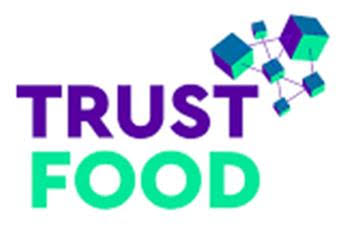
Description
The aim of this project is to support the development of advanced digital skills of people in the labour force, with a focus on SMEs, as well as to job seekers by providing access to high-quality specialised training courses, reflecting the latest developments in the area of Blockchain technologies applied holistically to the Food Supply Chain. The project will design and deliver short-term training courses for upskilling and reskilling of the labour force, with a particular focus on SMEs owners, managers, and employees in the Food Supply Chain (FSC) sector. The courses will be highly practical and will provide specific knowledge about key digital technologies of Blockchain and their applications to the FSC. The courses will be also focusing on job seekers in the particular area. The courses will have different length, from one month to 6 months maximum. The main types of courses will be: Courses for business’ leaders or managers, to acquire advanced digital skills and competences related to blockchain and how they can be deployed to innovate, transform and expand their businesses, as well as forge trust in their relationships with other businesses and stakeholders in the field. Courses for employed people or job seekers to acquire advanced digital skills and competences of how to integrate blockchain technologies to relevant innovative digital tools in their daily work. Intensive seminars and workshops on specific business cases and aspects of blockchain for high-skilled workers in SMEs or job seekers (e.g., business case: blockchain for enhanced traceability of food products).Key Contributions

Description
AVALANCHE aims to make transformative steps towards the development of a highly innovative, holistic, multi-disciplinary, high-tech, and versatile solution for significantly increasing/broadening the operational capabilities of LEAs in their struggle to detect, analyse, track, investigate and prevent cross-border illicit activities of high-risk criminal networks, such as hate speech, disinformation and deep fakes coordinated through the digital world.Key Contributions
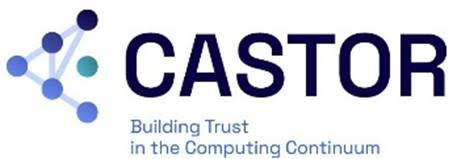
Description
CASTOR develops and evaluates technologies to enable trustworthy computing continuum -wide communications. It departs from the processing of user-expressed high-level requirements for a continuum service, which are turned-to combinations of security needs and network resource requirements, referred to as CASTOR policies. The policies are subsequently enforced on the continuum HW and SW infrastructure to realise an optimised, trusted communication path delivering innovation-breakthroughs to the so-far unsatisfied need: a) for distributed (composable) attestation of the continuum nodes and subsequent elevation of individual outcomes to an adaptive (to changes) continuum trust quantification; b) for the derivation of the optimal path as a joint computation of the continuum trust properties and resources; c) for continuum infrastructure vendor-agnostic trusted path establishment, seamlessly crossing different administrative domains.Key Contributions

Description
The renewed interest in direct current (DC) power transmission and distribution (T&D) systems is driven by the increasing use of power electronic-based loads and distributed energy resources (DERs) operating in DC. In response to events in Ukraine, the European Commission introduced the REPowerEU Plan, aiming to reduce Europe’s dependence on Russian energy imports. The EU-funded HYNET project aims to develop innovative technologies for the transnational design and planning of AC/DC hybrid power systems. It aims to establish standardised methodologies for multi-terminal, multi-vendor MVDC and LVDC systems and to design, implement, and demonstrate innovative solutions for adopting and deploying DC power systems across all voltage levels. The project will showcase HYNET innovations in four European countries.Key Contributions

Description
TRITON’s vision is to address defence-specific challenges related to the automation of penetration testing. Our goal is to fully automate the pre- and post-pentesting processes by leveraging Markov chain Monte Carlo decision processes to uncover hidden attack paths. Additionally, we will integrate the DevSecOps paradigm with established pentesting frameworks, focusing on applications in military Security Operation Centres, web and heterogeneous cloud environments, telecom, and wireless networks.Key Contributions

Description
The TraCEREAL project is dedicated to investigating how Blockchain technology, in conjunction with advanced IoT capabilities, can contribute to the establishment of resilient supply-chain operations within Cyprus. The project's objective is to develop and showcase a functional prototype system composed an intelligent algorithmic framework, seamlessly integrated with IoT technology, that can assist policymakers and industry stakeholders in constructing more resilient cereal supply chains tailored to the specific needs of Cyprus.Key Contributions

Description
PiQASO provides a robust, quantum-resistant alternative to traditional Public Key Infrastructure (PKI), offering post-quantum cryptographic (PQC) algorithms and protocols as-a-service. Its fully optimized, hardware-agnostic solution delivers encryption, authentication, and identity management that can be seamlessly integrated into existing infrastructures—without requiring additional specialist hardware on the client side. At its core, PiQASO enables crypto agility, allowing systems to dynamically switch between different post-quantum algorithms based on security policies and resource needs. It supports the latest NIST PQC standards, ensuring compliance and future-proof security. PiQASO’s programmable optimizations and accelerators enhance the performance of a broad spectrum of cryptographic families, while maintaining cost-efficiency. The PiQASO framework is validated through demonstrations across 14 diverse industry sectors, including finance, healthcare, energy, and aerospace. This ensures its practical applicability and effectiveness in securing sensitive data and communications against emerging quantum threats.Key Contributions
Description
SEQURED delivers advanced post-quantum cybersecurity solutions for defence and critical infrastructures. As quantum computing threatens current cryptographic systems, SEQURED develops quantum-resistant methods to protect sensitive data and communications, addressing risks like Harvest Now, Decrypt Later (HNDL) attacks. By combining hardware-software co-design, SEQURED provides optimized implementations of NIST-selected PQC algorithms (CRYSTALS-Kyber, Dilithium, FALCON, SPHINCS+), tailored for resource-constrained and legacy systems. Its Post-Quantum-as-a-Service (PQaaS) framework enables secure offloading of complex cryptographic operations to the cloud. Key innovations include: a) a Quantum-Resistant Blockchain Ledger (QR-Ledger) for secure and auditable data storage; b) Zero-trust security with continuous device attestation and trusted communication paths; and c) Crypto asset inventorying to identify and upgrade vulnerable components. Validated through defence use cases – such as quantum-secure UAV communications and field data collection – SEQURED delivers practical and robust quantum-resistant cybersecurity, strengthening defence organisations against emerging quantum threats.Key Contributions
EU Co-funded Project Management Methodology (PM2-Based)
The EU Co-funded Project Management Methodology is based on the PM2 methodology, which has been tailored specifically to manage EU research projects. It encompasses a comprehensive set of processes, procedures, and best practices aimed at ensuring the effective and efficient management of multi-partner, multi-year projects. This methodology includes a core set of templates and documents that cover all aspects of project management – from initiation and planning to monitoring, execution, and closure. By adopting this standardized approach, project managers can ensure consistent quality, improve communication across partners, and align with EU funding requirements, while minimizing risks and maximizing project impact.
EU Co-funded Project Risk Assessment Methodology
The EU Co-funded Project Risk Assessment Methodology provides a structured approach to identifying, assessing, and mitigating risks across EU-funded research projects. The methodology includes a set of tools and processes that help project managers evaluate financial, technical, legal, and operational risks throughout the project lifecycle. By implementing this methodology, project teams can proactively manage uncertainties, minimize delays, and keep projects on track, ensuring the successful achievement of project goals and compliance with EU standards.
EU Co-funded Project Legal & Ethics Management
PMO has established a comprehensive framework for managing legal and ethical compliance in all EU research projects. We are fully compliant with GDPR regulations, ensuring that all personal data is handled with the utmost care, minimized, and securely stored. PMO ensures that the project stays aligned with both EU and national laws, ensuring full legal compliance across all research activities. PMO manages intellectual property rights and ensures proper agreements are in place regarding ownership and use of any inventions or research outputs. Open access to publications and data is prioritized in line with EU guidelines, fostering transparency and broader knowledge sharing. For projects involving AI or new technologies, we ensure compliance with ethical AI guidelines, including fairness, accountability, and transparency. Human oversight is integrated into decision-making processes to avoid any unintended harm or bias.
Group Leader
Ms. Christina Stratigaki (Head of Group)
Short Bio
Christina Stratigaki holds a B.Sc. in Informatics & Telematics and an M.Sc degree in Information Systems Management. Her academic research fields of interest since her Bachelor's level of studies are Conceptual modelling, Business Process modelling, simulation and re-engineering. In her Master thesis, she created a conceptual meta-model for compliance management towards business processes. She has published several conference papers and book chapters. From 2012, she has participated in various EU funded projects (FP7, Tempus and H2020) and National Programs related to Transport and Supply chain Logistics, Business process and capabilities management, IoT and Cloud - applications. She has also worked as a business analyst and project manager in commercial banking products (Portfolio Management, Mutual Funds Monitoring, Card disputes and a banking ticketing system). Furthermore, she has been involved in proposals writing under EU frameworks for the last 11 years. She has acted as the Project Coordinator in H2020 projects ASCAPE (875351), RAINBOW (871403) and PUZZLE (883540). Furthermore, she is a certified Project Manager with the PM2 methodology. Currently, she is the Head of UBITECH’s Project Management Office and oversees 22 projects and 11 Project managers.
[LinkedIn]
Key Team Members
Ms. Eleni Tsironi (Senior Delivery & Fundraising Manager, Agrifood Chapter Leader)
Short Bio
Ms. Eleni Tsironi is a highly skilled professional with an Integrated Master’s degree in Electrical and Computer Engineering from the University of Patras (Greece), specializing in Electric Power Systems. Since 2013, she has been actively involved in numerous European and National R&D programs across various domains such as Energy Efficiency, Agri-food, and Sustainable Development. Notably, she has acted as Project Coordinator in H2020 projects FARCROSS (864274) and BEYOND (957020), showcasing her leadership capabilities. Currently, she holds the position of Project Coordinator in Horizon Europe projects D-HYDROFLEX (101160671) and DIGITISE (101160671), emphasizing her dedication to advancing sustainable technologies. She is also contributing to the Digital-SME project TRUSTFOOD (101100804), demonstrating her commitment to leveraging innovative technologies for enhancing trust in food supply chains. She is a strong problem solver with increased ability in working and collaborating in multivariable and demanding environments, driven by a commitment to quality and attention to detail.
[LinkedIn]
Ms. Mariza Konidi (Senior Delivery & Fundraising Manager, Secure Societies Chapter Leader)
Short Bio
Ms. Mariza Konidi is a highly accomplished Senior Delivery & Fundraising Manager at UBITECH, boosting over 15 years of invaluable experience spanning both commercial and research domains. Mariza holds a BSc in Industrial Management & Technology from the University of Piraeus, complemented by an MSc in Information and Communication Systems from the University of the Aegean. She has further fortified her expertise with an additional MSc in Marketing & Communication with New Technologies, earned from the Athens University of Economics and Business. Currently, Mariza is immersed in the pursuit of her PhD in the realm of AI/ML for Security within the field of Social Sciences and Humanities. Since 2018, she has been actively engaged in the coordination and participation of numerous EU-funded research projects, spanning a wide spectrum of sectors including Cybersecurity, Governance, Manufacturing, Health, Transport, and Energy.
[LinkedIn]
Mr. Ioannis Avramidis (Senior Delivery Manager, Dissemination & Exploitation Specialist)
Short Bio
Mr. Ioannis Avramidis is an experienced project delivery manager with over eight years of comprehensive experience running EU-funded projects from inception to fruition. Working across diverse sectors including AI in healthcare, cybersecurity, border security, IoT, and energy, John possesses a broad understanding of cutting-edge developments in these domains. His expertise is particularly strong in impact creation, where he has effectively leveraged research and innovation to design and implement successful communication campaigns and strategic business plans. With a practical approach and strong dedication, John has played a key role in ensuring projects achieve and surpass their goals, demonstrating the ability to translate complex concepts into tangible outcomes.
[LinkedIn]
Recent Highlights
-
Successful coordination and completion of multiple projects under H2020 funding programme such as ASCAPE (875351), RAINBOW (871403) and PUZZLE (883540), FARCROSS (864274) and BEYOND (957020).
-
Participation in prestigious events on an annual basis to boost the diffusion of projects’ results (e.g. ENLIT and EUCNC)
Collaboration & Partnerships
Over the years, PMO team had the privilege of collaborating with a wide range of trusted partners across various projects. Below is a selection of organizations PMO have worked with—each bringing valuable expertise and commitment to shared success. Please note, this list is non-exhaustive and highlights just a few of PMO’s valued partnerships.
-
SUITE5 DATA INTELLIGENCE SOLUTIONS LIMITED - ICT provider
-
MONTIMAGE EURL – Security IT provider
-
ARTHUR'S LEGAL BV – Legal & Ethics expert
-
UNIVERSIDAD DE MURCIA – Informatics Faculty, ICT Research & provision
-
FundingBox - European facilitator of cascade funding
-
Department of Informatics, Aristotle University of Thessaloniki – ICT Research & provision
-
K3Y – ICT provider
-
REZOS BRANDS ANONYMI EMPORIKI ETERIA IDON DIATROFIS – Agriculture and Food Technology expert
-
Department of Computer Science, University of Cyprus - Computer Networks and Internet Computing
-
DFKI – German Research Center for Artificial Intelligence – AI expert
-
ICCS – Institute of Communication and Computer Systems – ICT Research & provision
-
European Digital SME Alliance – Network of ICT SMEs
-
8BELLS - Research & Consulting
For collaboration opportunities and other inquiries, contact us at [email protected]



